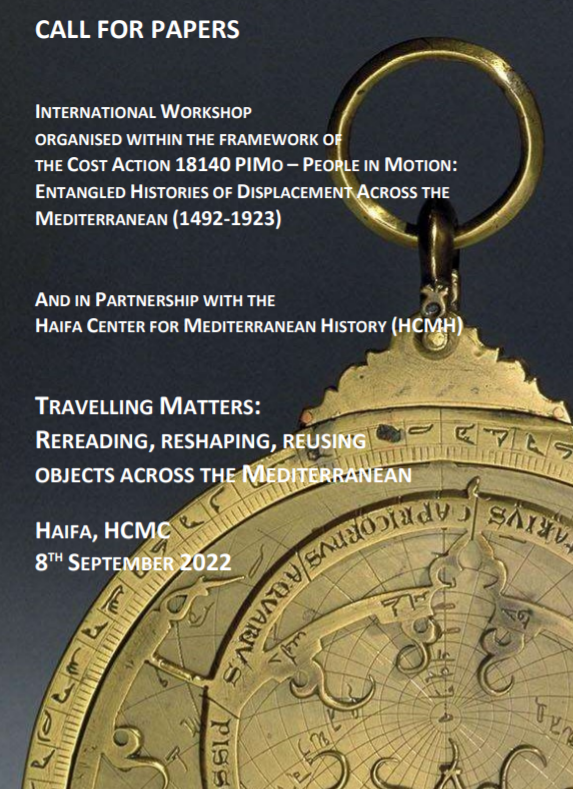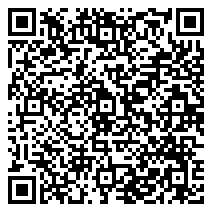
Travelling Matters: Rereading, Reshaping, Reusing Objects Across The Mediterranean, Haifa, HCMC 8th September 2022
Full Call for Papers Available Here: CfP with deadline July 15th
In the last two decades, objects have become increasingly relevant to historical studies as the primary focus of research discussing cross-cultural relations. Objects are produced, used, modified, preserved and destroyed according to historically specific political and cultural settings, thus providing researchers with information and insights about their original background. However, they can also throw light on a large array of cross-cultural encounters when their mobility is put to the fore. Objects can move by being bought, gifted, bartered and sold, borrowed or stolen, collected and dispersed, just as they can be modified, repaired, reshaped, repurposed and destroyed in the process. The Mediterranean, as a barrier and as a meeting place for different polities and communities, and as the setting of conflicted experiences of cultural, political, economic and social transformation, easily lends itself to this kind of historical analysis.
The workshop “Travelling matters: rereading, reshaping, reusing objects across the Mediterranean” intends to tackle objects as sources and subjects of the history of cross-cultural encounters in innovative ways. Primarily, we intend to discuss objects flowing in all directions, thus avoiding the kind of narrowing perspectives embedded in the study of one-way routes, such as that which goes from the North to the South or from the East to the West. Moreover, the category of objects as we understand it should be as large as possible, including items such as food, drugs, books, manuscripts, maps, antiques, human remains and relics (as objects to study, ancestors to bury or to worship), clothing, minerals, plants, fossils, tools and scientific instruments, objects of use and objects in precious materials. The materiality and mobility of such items should be underscored along with the practises and knowledges with which they are intertwined.
Secondly, we wish to concentrate on the “second-handedness” of displaced objects: in other words, how and why moving objects acquire new functions and new meanings as they are displaced and with what consequences for the relations between the communities involved? How and why displaced objects can be lost or forgotten just so that they can later re-emerge and be repurposed? What kind of relationship can be established between such repurposing on the one side, and political or cultural change on the other? In which ways do these processes affect and are affected by the historical shaping of individual and collective identities? What kind of emotional investments in the objects (thoughts, feelings, and behaviours) accompany their possession, their peregrinations, their reclaims? Were the objects used for nation- building, trying to create a national identity, or on the contrary for affirming local and regional identities in tension with the national and centralising one?
Both these perspectives demand a broad chronology, extending from antiquity to the present-day, and for the intersection between different time frames, from the relatively narrow scale of individual objects being displaced across the Mediterranean to the much larger one of the histories of their reinterpretation and repurposing.
The organisers intend to publish a peer-reviewed selection of papers from the conference; accepted speakerswill be requested to provide a 2,000-word draft by 15th July 2022.


